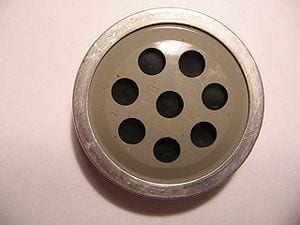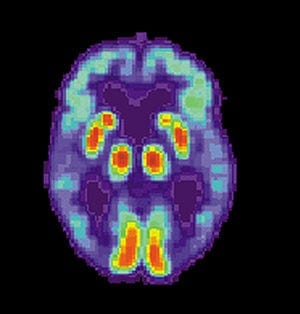
Sensor technology: Microphones are designed to capture sound. But they turn out to be able to capture other sorts of information, too
MICROPHONES exist in many shapes and sizes, and work in many different ways. In the late 19th century, early telephones relied on carbon microphones, pioneered by Thomas Edison; today’s smartphones contain tiny microphones based on micro-electro-mechanical systems, commonly called MEMS. Specialist microphones abound in recording studios; others are used by spies. But whatever the technology, these microphones all do the same thing: they convert sound waves into an electrical signal.
It turns out, however, that with the addition of suitable software, microphones can detect more than mere audio signals. They can act as versatile sensors, capable of tuning into signals from inside the body, assessing the social environment and even tracking people’s posture and gestures. Researchers have reimagined microphones as multi-talented collectors of information. And because they are built into smartphones that can be taken anywhere, and can acquire new abilities simply by downloading an app, they are being put to a range of unusual and beneficial uses.
That natural microphone, the human ear, is finely attuned to picking up certain characteristics in a person’s voice. It is not hard, for instance, to infer from a slight change in pitch when a friend might be under stress. Tanzeem Choudhury of Cornell University and her research team are building mobile-phone software that can be trained to do the same thing. That stress results in subtle changes in pitch, amplitude and frequency, as well as speaking rate, has been known for decades. But humans respond to stress in different ways and have different coping styles, says Dr Choudhury. So a one-size-fits-all smartphone app which analyses speech will not provide an accurate assessment of whether someone is stressed or not.
The sound of stress
Dr Choudhury’s solution is an app called StressSense. Running on a standard Android-based smartphone, it listens for certain universal indicators of stress but is able, over time, to learn the specifics of a particular user’s voice. It is unobtrusive yet is also robust enough to work in noisy environments, which is crucial if it is to be of practical diagnostic use. StressSense does not actually record speech, Dr Choudhury emphasises, but simply captures and analyses characteristics such as amplitude and frequency. In a paper published last year, the researchers concluded that “it is feasible to implement a computationally demanding stress-classification system on off-the-shelf smartphones”. Their ultimate goal is to develop an app that can help someone determine the links between irritating situations and subsequent responses. Your phone might realise before you do, for example, that your 8am meetings are the cause of your headaches.
StressSense is still in development. In the meantime, Dr Choudhury’s team has launched an Android app called BeWell that focuses more on overall health by looking at three metrics: sleep, physical activity and social interaction. These three metrics, Dr Choudhury believes, are important yet easily measured indicators of someone’s health. BeWell’s sleep-tracking feature guesses whether the phone’s user is awake or not by analysing usage, light and sound levels, and charging habits. Physical activity is monitored using built-in accelerometers for motion-detection. And social activity is measured chiefly by collecting snippets of sound that indicate that the user is talking to someone, either in person or over the phone.
Again, no actual words are stored, simply features of human speech, which the app can distinguish from background noise such as music or traffic. Certain changes in a person’s social interactions—a sudden drop-off, for instance—can be indicative of health problems such as depression, says Dr Choudhury. The idea is that the app could tip someone off to a change in their behaviour that might otherwise have gone unnoticed.
Microphones need not limit themselves to listening to the human voice, however. John Stankovic of the University of Virginia in Charlottesville is using microphones to capture heartbeats. Researchers in his group are using earphones modified with accelerometers and additional microphones that detect the pulse in arteries in the wearer’s ear. This makes it possible to collect information about the wearer’s physical state, including heart rate and activity level, which is transmitted to the smartphone via the audio jack. The researchers even created an app, called MusicalHeart, that analyses the wearer’s heart rate and recommends songs from a music library based on a heart-rate goal—faster to encourage a runner, or slower to calm someone who is feeling nervous.
The Latest Bing News on:
Micro-electro-mechanical systems
- Q&A: How advanced chip packaging can help redesign the future of semiconductorson May 8, 2024 at 10:28 am
The phrase "advanced chip packaging" might conjure images of a fancy Pringles can. For those who manufacture semiconductors—also known as integrated circuits, chips or microchips—it represents a new ...
- Global MEMS Gyroscope Market Research 2024-2032: Innovation & Applications, Sector Insights, Regional Analysis, Competitive Landscapeon May 2, 2024 at 10:31 pm
The recent industry analysis on the Micro-Electro-Mechanical System (MEMS) Gyroscope market suggests a robust growth trajectory for this sector, with projections indicating an escalation in market ...
- Pure-play MEMS foundry begins construction 300 mm fabon May 2, 2024 at 5:41 am
Rogue Valley claims it will be the first pure-play MEMS foundry with a 300 mm wafer capability. The fab is designed for vendors requiring post-CMOS processing and are looking to improve margins and ...
- Era of earbud compromises now over; Skyline, xMEMS solid-state acoustic vent, enables earbuds that excel in every situationon April 29, 2024 at 11:45 pm
MEMS introduced the Skyline DynamicVent in 2023 to solve many of the unaddressed consumer experience issues with TWS earbuds. Skyline is a novel, but straightforward extension of xMEMS' innovative ...
- Micro-Electro-Mechanical System (MEMS) Market Size, Share, Industry Growth, 2029on April 29, 2024 at 6:30 pm
The Micro-electro-mechanical System (MEMS) market Size is projected to grow from USD 16.5 billion in 2024 and is projected to reach USD 24.2 billion by 2029; it is expected to grow at a CAGR of 7.9% ...
- Microelectromechanical Systems (MEMS) Market Segmentation Analysis, Share, Trends, Size, Key Players, and Forecast 2024 to 2032on April 28, 2024 at 3:05 pm
Application error: a client-side exception has occurred (see the browser console for more information).
- Microelectromechanical System (MEMS) Sensor Market Businesses Embrace Segmentation Synergy for Smarter Market Targetingon April 21, 2024 at 8:30 pm
Request To Download Free Sample of This Strategic Report @ Microelectromechanical System (MEMS) Sensor Market was valued at $25.7 million in 2018, and is projected to reach $60.6 million by 2026, ...
- Scientists develop composite accelerometer for extreme environmentson April 7, 2024 at 5:00 pm
The demand for microelectromechanical systems (MEMS) resilient to harsh environments is growing. Silicon-based MEMS struggle under extreme conditions, limited by their performance at elevated ...
- Micro-Electro-Mechanical System (MEMS) Market worth $24.2 billion by 2029 - Exclusive Report by MarketsandMarkets™on March 29, 2024 at 7:15 am
The consumer electronics segment represents a crucial arena for MEMS (Microelectromechanical Systems) technology, witnessing its widespread adoption across various devices. These systems are ...
The Latest Google Headlines on:
Micro-electro-mechanical systems
[google_news title=”” keyword=”micro-electro-mechanical systems” num_posts=”10″ blurb_length=”0″ show_thumb=”left”]
The Latest Bing News on:
StressSense
- Stress and Disorders of the Stress Systemon May 4, 2024 at 5:00 pm
The interaction between homeostasis-disturbing stressors and stressor-activated adaptive responses of the organism can have three potential outcomes. First, the match may be perfect and the ...
- Understanding Child Developmenton May 2, 2024 at 5:10 pm
Human development is influenced by, but not entirely determined by, our parents and our genes. Children may have very different personalities, and different strengths and weaknesses, than the ...
- Amazon deal shaves $100 off the Fitbit Sense 2on April 30, 2024 at 5:00 pm
Whether the upcoming summer is going to be more about the fitness journey or the social scene for you, the Fitbit Sense 2 would make a fine wrist adornment. Its $300 retail price puts it beyond a ...
- Can Stress Cause Acid Reflux?on April 30, 2024 at 5:00 pm
Stress may trigger acid reflux as it can make you more sensitive to smaller amounts of acid in the esophagus. Adopting coping mechanisms for stress may help reduce symptoms. Stress and anxiety can ...
- How to Think About Stress, Eating, and Obesityon April 29, 2024 at 5:00 pm
Stress and obesity are two very large public health problems. Because obesity can be more easily quantified, it is probably more widely accepted than stress as a source of physical disorders among ...
- Stress may be causing infertility in womenon April 26, 2024 at 5:00 pm
Stress can make women infertile, research has revealed. Scientists found that those with high levels of a stress hormone stop ovulating and are therefore unable to conceive. Women with hectic jobs ...
- DualSense vs DualSense Edge: which PS5 controller should you buy?on April 25, 2024 at 6:43 am
With the DualSense Edge, Sony has officially thrown its hat into the ‘Pro’ controller ring, alongside heavy hitters like Microsoft’s Xbox Elite Wireless Controller Series 2. Not to mention ...
- Seniors with dementia are treated to 'baby shower' with dolls to help relieve stress: 'Sense of purpose'on November 22, 2023 at 9:48 am
A senior living facility in Scotland recently held a "baby shower" using dolls for its patients with dementia. Ryan Meadows Care Home received 60 baby dolls from Pearl’s Memory Babies to host a ...
The Latest Google Headlines on:
StressSense
[google_news title=”” keyword=”StressSense” num_posts=”10″ blurb_length=”0″ show_thumb=”left”]











